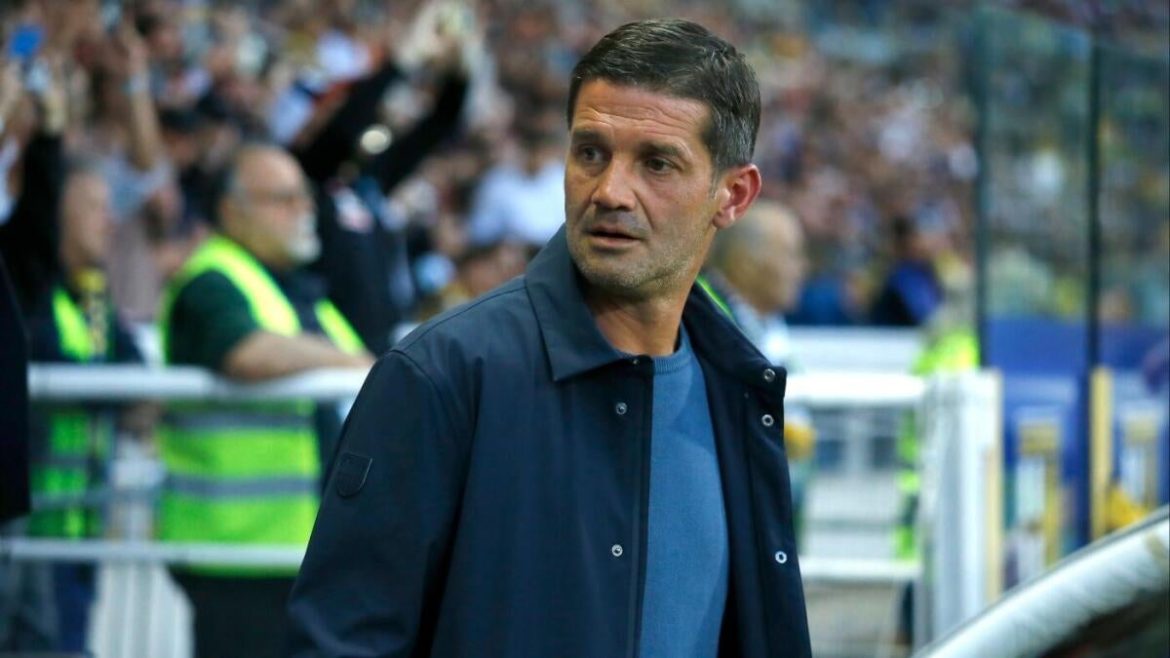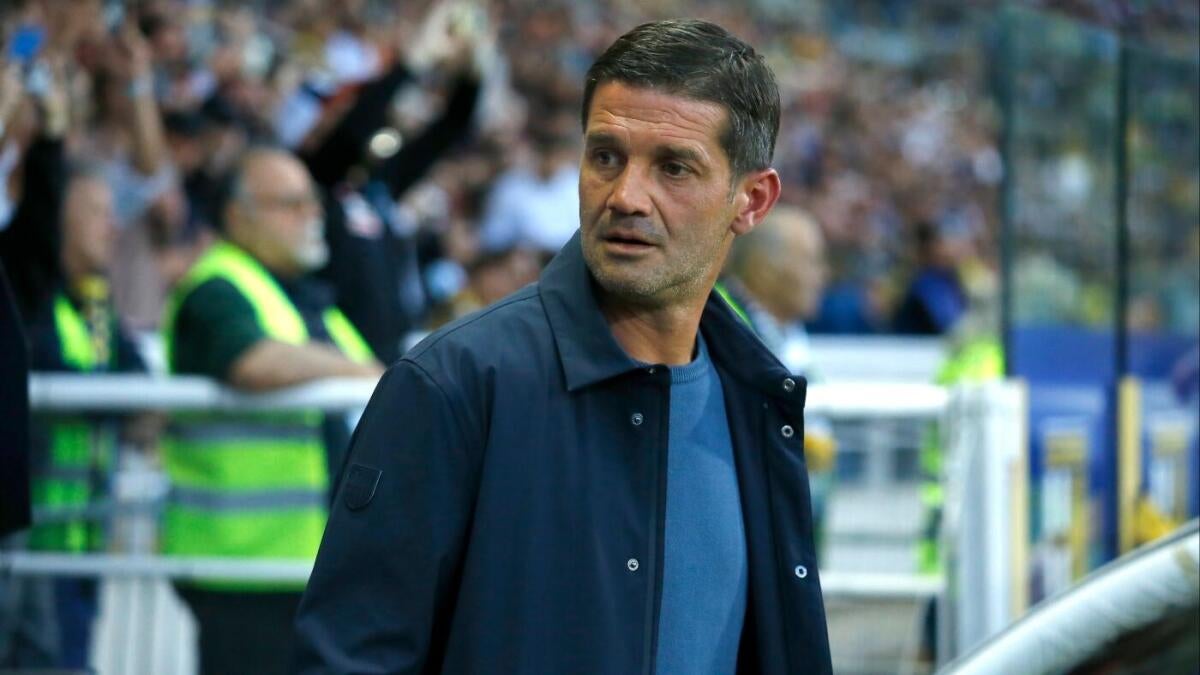The recent departure of Simone Inzaghi from Inter Milan and the subsequent search for his replacement has generated significant buzz in the football world. This report delves into the unfolding developments around Inter Milan’s coaching situation, analyzing the circumstances of Inzaghi’s exit, the club’s targets for a successor, and the broader implications for both the club and involved parties.
—
Simone Inzaghi’s Departure: An Unexpected Chapter Ends
Simone Inzaghi’s four-year tenure at Inter Milan concluded abruptly after the team suffered a heavy 5-0 defeat against Paris Saint-Germain in the Champions League final. Despite leading Inter to multiple domestic honors including the Serie A title in the 2023-24 season, two Coppa Italia trophies, and three Supercoppa Italiana wins, the crushing loss marked the end of his era at the San Siro. Reports confirm the parting was by mutual consent, with Inzaghi accepting a lucrative two-year contract to manage Saudi Arabian club Al-Hilal, reportedly earning around €50 million, a figure that underscores the club’s ambitions and investment in high-profile football figures.
This transition not only highlights the growing allure of Middle Eastern clubs for European coaches but also signifies a shift in the competitive landscape, where top talents and managers are increasingly attracted by financial incentives outside traditional European football powerhouses.
—
Inter Milan’s Search for a New Manager: A Turbulent Process
The vacancy left by Inzaghi set off a flurry of activity within Inter’s management and fanbase, eager to see the club maintain its competitive edge. Initially, Inter approached Como’s head coach Cesc Fabregas as a potential replacement. Fabregas, a former Arsenal and Chelsea legend, has been managing Como and was identified as an appealing long-term project for Inter. Talks were reportedly underway, signaling the club’s desire for a fresh, ambitious outlook potentially inspired by Fabregas’s unique playing pedigree and initial coaching experience.
However, Fabregas declined the offer, choosing to remain with Como to continue his developmental project rather than jumping immediately into the high-pressure role at a Serie A giant. His decision reflects both personal career strategy and a commitment to building a coaching career step-by-step, an approach that contrasts with the immediate demands of a club like Inter Milan.
Following Fabregas’s refusal, Inter shifted focus abruptly to internal and alternative options. Christian Chivu, a former Inter player and youth coach, was informed by the club that he would be appointed as head coach. This surprise decision indicates Inter’s preference for continuity and familiarity within the club’s culture and infrastructure, even if Chivu lacks extensive senior managerial experience. Additionally, Roberto De Zerbi was also among the top candidates considered during the process, reflecting Inter’s scouting for a manager capable of combining tactical savvy with adaptive leadership.
—
Impact and Strategic Considerations for Inter Milan
Inter Milan’s handling of their managerial succession will be pivotal to their short- and long-term ambitions. Replacing a decorated coach like Inzaghi is never straightforward, especially as the club grapples with the shock of a Champions League final defeat. Chivu’s appointment suggests a strategy favoring internal growth and incremental development. This approach could preserve the stability of squad dynamics and strategic continuity. However, it also poses risks, given Chivu’s relative inexperience at the highest managerial level.
On the other hand, the club’s earlier interest in Fabregas and De Zerbi signals an openness to more innovative or emergent coaching philosophies, potentially blending modern tactical approaches with the club’s established identity.
Moreover, Inzaghi’s move to Al-Hilal exemplifies the shifting locus of managerial destinations in global football. The Saudi Pro League’s acquisition of a Serie A-winning coach at a substantial salary highlights the ongoing transformation of football’s economic and competitive ecosystems, with fewer cultural or geographic boundaries restricting movement.
—
Cesc Fabregas’s Coaching Journey: Ambitions vs. Realities
Fabregas’s decision to reject Inter’s offer and stay with Como is particularly noteworthy. His commitment to Como’s project underscores a rare patience in the rapid-fire world of football management, especially given the high-profile opportunity presented by Inter. This choice bolsters his credibility as a coach focused on sustainable development rather than immediate prestige. It also highlights the growing respect for smaller clubs as fertile grounds for tactical innovation and personal growth.
If Fabregas’s project flourishes in Como, it may pave the way for future top-level appointments, potentially equipping him with a robust foundation to handle the pressures and expectations found at elite clubs like Inter Milan.
—
Conclusion: A New Era at Inter Milan
Inter Milan stands at a crossroads following Simone Inzaghi’s departure, balancing ambition with realism as they appoint Christian Chivu to steer the club forward. This transition reflects wider trends in football management—from the movement of parties to emerging leagues like Saudi Arabia, to the strategic weighing of internal versus external appointments.
Fabregas’s refusal of Inter’s offer also highlights evolving career philosophies among emerging coaches, emphasizing long-term project-building over instant elevation.
Ultimately, Inter’s next chapter will depend heavily on how well Chivu adapts to managing a club with immense expectations and how the squad responds to this leadership shift. Meanwhile, Inzaghi’s departure to Al-Hilal and the kingdom’s growing football ambitions symbolize the globalizing landscape of the sport, where tradition meets transformation with profound implications for clubs, coaches, and fans worldwide.





